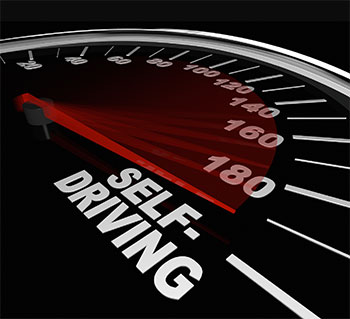16 November 2017
The Government is expected to introduce the new Automated and Electric Vehicles Bill this autumn to replace the Vehicle Technology and Aviation Bill which lapsed earlier this year. The new Bill has been designed to ‘smooth the road’ for driverless car technology and will include an extension of car insurance to cover the use of automated vehicles.
There are several ongoing trials of driverless cars ongoing in the UK, with the first set of public road trials due to take place by the end of 2017. A consortium of British companies have plans to test driverless cars on motorways in 2019. As the development of automated technology accelerates, what impact can we expect to see in the not so distant future?

The Government is reportedly investing more than £200 million in research and testing infrastructure with the hope that the introduction of driverless technology will have a positive effect on reducing road traffic accidents. If human error is the biggest cause of road traffic accidents, the advent of driverless technology may theoretically lead to a reduction in road traffic accidents.
The potential exists in the proposed Bill for the principles of motor insurance to apply to product liability insurance where accidents involve driverless cars. This raises issues over what policy ought to respond and whether drivers will require both a motor and product liability product when insuring a driverless vehicle.
Liability will no doubt vary from case to case depending on the circumstances. For example, incidents that occur where the driver has the option to step in and resume manual control of a vehicle will require close investigation.
Another consideration is the potential requirement for statutory rights of recovery to be created to allow insurers to claim back costs from potentially responsible parties, depending on the precise cause of a given accident. A non-exhaustive list of these could include the vehicle, system and software manufacturers.
The potential implications of driverless technology are far reaching. In addition, to potentially complex questions over liability and the necessity to extend the current insurance requirements and legislative framework, driverless technology presents other concerns such as criminal liability, together with privacy and cyber risk. These are all matters which will require detailed consideration before driverless cars are eventually rolled out.
Contact:
 |
|
Garry Ferguson |


